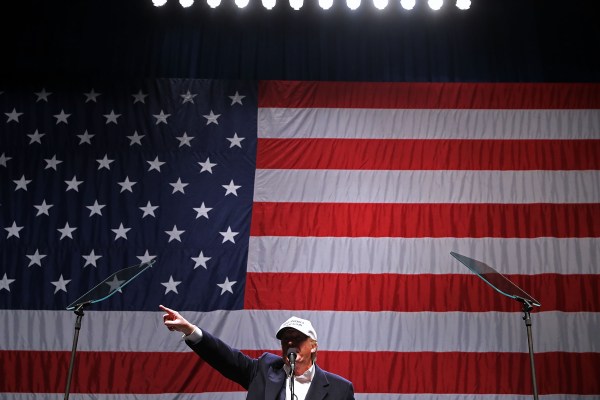Just days after President Trump’s tweets antagonized a foreign adversary over who would be first to start nuclear war, Twitter has addressed calls for the company to ban the chatty, often bellicose U.S. president.
In a vague post called “World Leaders on Twitter,” Twitter awkwardly sidestepped the controversy over whether Trump’s Twitter account violates its terms of service altogether, instead asserting that it doesn’t matter if a world leader violates its terms of service — they should have a home on the platform nonetheless. The post never names Trump.
Their words:
There’s been a lot of discussion about political figures and world leaders on Twitter, and we want to share our stance.
Twitter is here to serve and help advance the global, public conversation. Elected world leaders play a critical role in that conversation because of their outsized impact on our society.
Blocking a world leader from Twitter or removing their controversial Tweets, would hide important information people should be able to see and debate. It would also not silence that leader, but it would certainly hamper necessary discussion around their words and actions.
We review Tweets by leaders within the political context that defines them, and enforce our rules accordingly. No one person’s account drives Twitter’s growth, or influences these decisions. We work hard to remain unbiased with the public interest in mind.
We are working to make Twitter the best place to see and freely discuss everything that matters. We believe that’s the best way to help our society make progress.
Whether Trump has in fact violated Twitter’s policies on user behavior is an open debate. Most users can’t back up their casual threats with a nuclear arsenal, so it’s safe to say that the Trump Twitter situation poses some uniquely weighty questions. Some even argue that Trump’s Twitter threats are an exercise in nuclear deterrence and can be categorized more as bizarrely articulated military policy than the kind of tweet that might violate Twitter’s rules banning “specific threats of violence.”
While plenty of Trump’s older tweets dabble in online harassment, it sounds like anything goes for world leaders so long as they’re elected. But lots of despots are “elected.” Would Rodrigo Duterte get the same pass were he to threaten state-sponsored brutality in specific terms? Would Kim Jong-un? According to this, it sounds like yes.
If you’re still using Twitter, you probably won’t be surprised by the fact that the company retains its right to impose its own rules selectively — after all, it’s been doing so for years. Calling for Twitter to take an ideological stand in order to prevent a social media-spurred international nuclear conflict is a nice thought, but considering how deeply committed tech companies are to the illusion of neutrality — which happens to dovetail nicely with the spineless art of self-preservation — it’s not a very realistic one.
